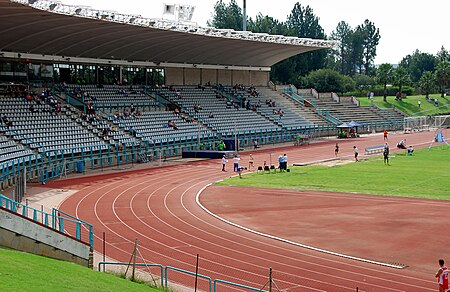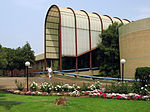Pilditch Stadium
Athletics (track and field) venues in South AfricaBuildings and structures in PretoriaGarankuwa United F.C.Multi-purpose stadiums in South AfricaSoccer venues in South Africa ... and 2 more
South African sports venue stubsSports venues in Pretoria

Pilditch Stadium is a multi-use stadium in the show grounds complex of Pretoria city, situated at the Northern part of the Gauteng province in South Africa. It is used for track and field athletics and football matches, and is currently used as home venue by the two Vodacom League teams: Supersport United (2nd team) and Garankuwa United.
Excerpt from the Wikipedia article Pilditch Stadium (License: CC BY-SA 3.0, Authors, Images).Pilditch Stadium
Soutter Street, Pretoria Pretoria-West
Geographical coordinates (GPS) Address External links Nearby Places Show on map
Geographical coordinates (GPS)
| Latitude | Longitude |
|---|---|
| N -25.751667 ° | E 28.164722 ° |
Address
Pilditch Stadium
Soutter Street
0126 Pretoria, Pretoria-West
Gauteng, South Africa
Open on Google Maps





